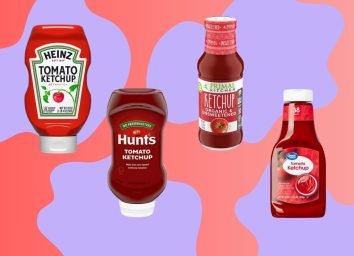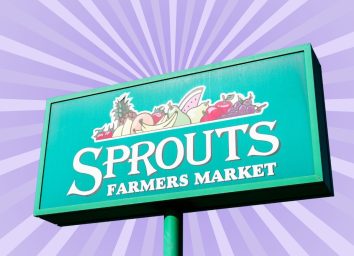12 Fruits & Veggies That Contain the Most Pesticides In 2023
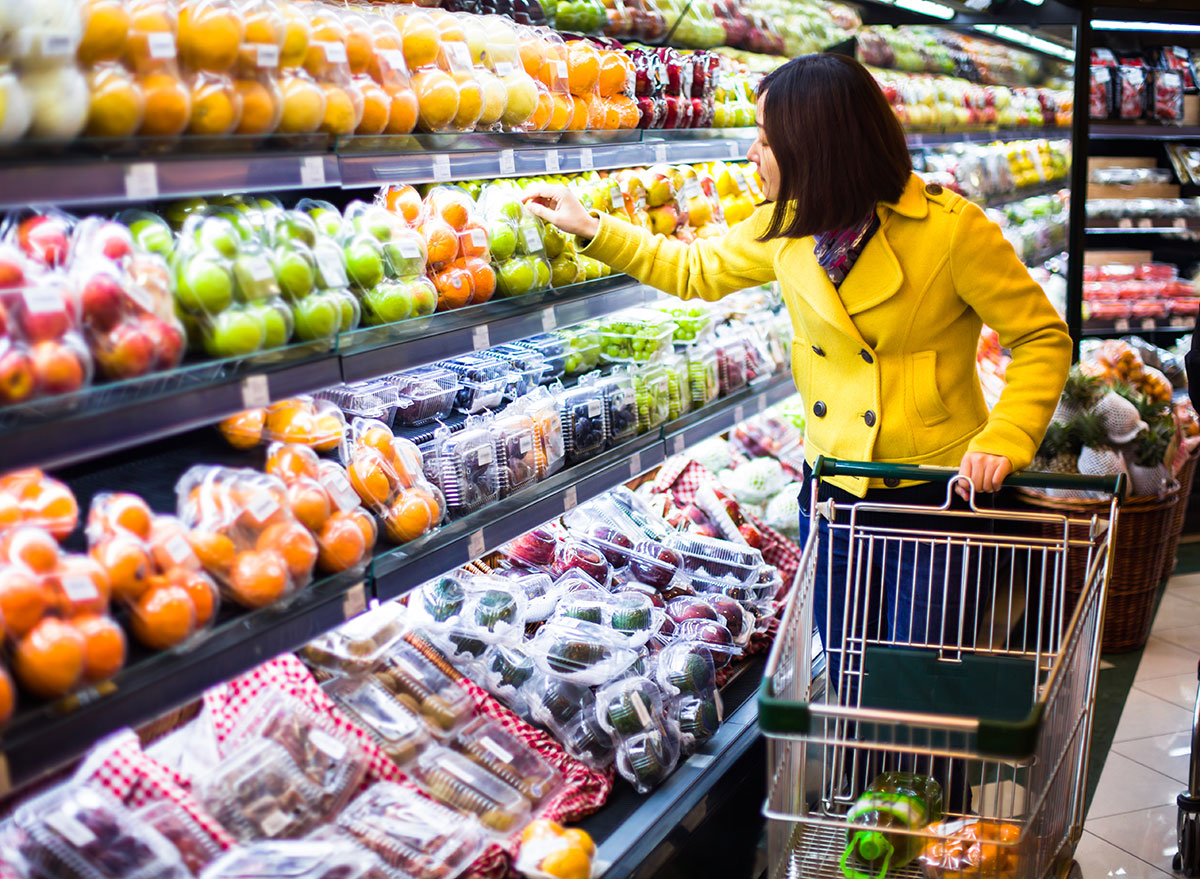
Doctors and dietitians continuously urge us to eat more fiber-rich, nutrient-dense fruits and veggies because they say they're good for us! They're not wrong. Multiple studies have touted the health benefits of eating foods like blueberries, spinach, carrots, broccoli, and mushrooms.
But what if you are exposing yourself to potentially harmful pesticides in the process?
That's just what the latest research from the non-profit group Environmental Working Group (EWG) showed: more than 75% of non-organic fresh produce sold in the U.S. contains residues of pesticides. That's an even higher percentage than the results of a similar EWG study last year. The report is based on federal data collected from thousands of samples of 46 different conventionally grown fruits and vegetables.
The EWG uses this data to create two lists: the "Dirty Dozen," as the group calls it, includes the fruits and veggies that are most contaminated with pesticides, and the "Clean Fifteen," made up of produce with the lowest levels of contamination.
The idea is to help consumers make informed produce choices at the grocery store.
What are the "Dirty Dozen" and the "Clean Fifteen?"
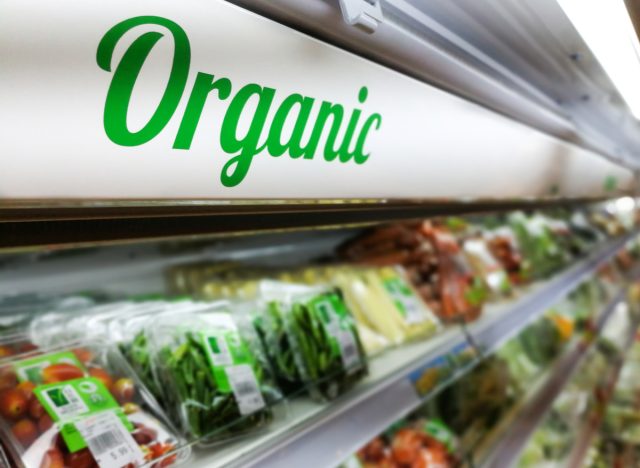
Since 2004, the EWG has compiled its "Dirty Dozen" and "Clean Fifteen" lists, based on information from the U.S. Department of Agriculture's (USDA) Pesticide Data Program.
"The USDA collects thousands of samples of produce every year that are bound for supermarket shelves in the U.S.," explained Alexis Temkin, Ph.D., EWG toxicologist. "Our analysis of data from more than 46,000 samples found that 75% of non-organic fresh produce samples were contaminated with pesticide residues from 251 different pesticides."
The high number of pesticides discovered in the group's research "reflects growing practices that are heavily dependent on synthetic pesticides," noted Temkin, adding, "The pesticides found by the USDA remain even after the produce samples have been washed and peeled."
According to EWG, too much exposure to pesticides can potentially harm your health. Temkin cited studies by the Journal of American Medicine, Journal of Exposure Science & Environmental Epidemiology, and International Journal of Epidemiology, which link the consumption of produce high in pesticide residue to increased risks of certain negative health impacts.
The group strongly recommends that consumers choose organic produce whenever possible. Otherwise, stick to fruits and vegetables from the "Clean Fifteen" list—and avoid the "Dirty Dozen."
Do you need to be concerned about pesticides on your produce?
If you are worried about pesticides in your food, the worst thing you can do is to cut down on fruits and vegetables, altogether. Most Americans don't eat enough already, according to the CDC.
"The risks associated with not eating enough produce far outweigh any concern associated with eating produce on the dirty dozen list," said Lauren Manaker, MS, RDN, LD, a registered dietitian on the Eat This, Not That! medical review board.
And contrary to popular belief, Manaker said it's not just conventional produce that contains pesticides. The term "organic" does not mean "pesticide-free," she noted.
"Organic or natural pesticides or other additions may sound harmless, but in some cases, high exposure may be concerning," Manaker said. "For example, copper sulfate, a natural compound that is used on certain crops to ward off fungus growth, may be linked to liver damage when exposure is too high."
According to Manaker, the amount of pesticide residue that is present on produce is probably too small to make a huge impact. "None of us are eating the amount of produce that would have a significant effect on our health—for example, a woman would need to eat over 400 strawberries every single day to reach the levels of pesticide residue associated with potential risks," she said.
The "Dirty Dozen"
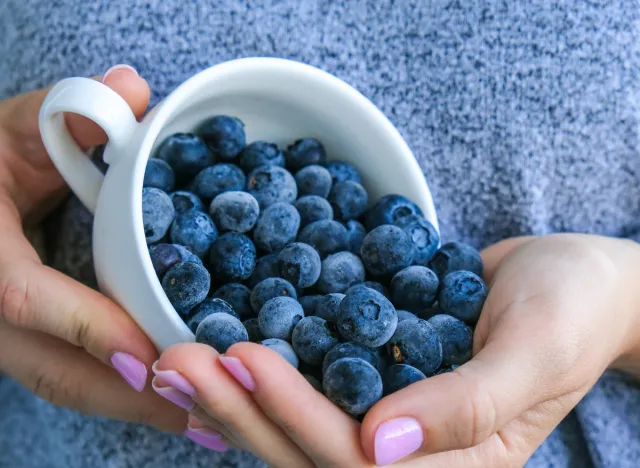
While strawberries remain at the top of the "Dirty Dozen" list again this year, there are a few new additions to the group—specifically, blueberries and green beans, knocking tomatoes down to No. 13 and celery to No. 15.
"Compared to the last time blueberries and green beans were tested by the USDA, in 2014 and 2016 respectively, the number of samples with detectable pesticide residues has increased," said EWG's Temkin, noting that the chemicals were found on 90 percent of recent samples for both foods.
Here is the full list of fruits and veggies with the most pesticides.
- Strawberries
- Spinach
- Kale, Collard & Mustard Greens
- Peaches
- Pears
- Nectarines
- Apples
- Grapes
- Bell & Hot Peppers
- Cherries
- Blueberries
- Green Beans
The "Clean Fifteen"
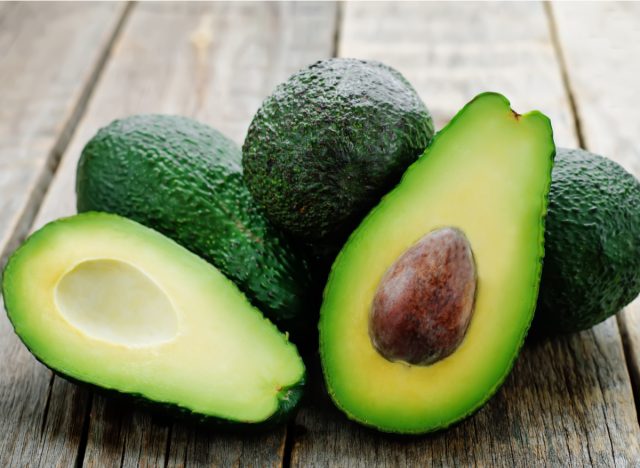
If you're a fan of avocados, there's good news for you: the bright green fruit ranked atop the cleanest produce list yet again this year.
According to Temkin, the fruit's dark leathery skin is a big factor. "[Avocados] have a thick outer layer to protect them, which means farmers can use fewer pesticides when growing them," she explains. "On the flip side, delicate produce, grown close to the ground, such as strawberries and spinach, are not as naturally protected and therefore tend to be sprayed with more pesticides."
Nearly 65% of Clean Fifteen samples had no detectable pesticide residues, according to EWG. Just over 10% of Clean Fifteen samples had residues of two or more pesticides, and no sample from the top six items tested positive for more than three pesticides.
Here is the full list of fruits and veggies with the least amount of pesticides.
- Avocados
- Sweet Corn
- Pineapples
- Onions
- Papayas
- Sweet Peas
- Asparagus
- Honeydew Melons
- Kiwi
- Cabbage
- Mushrooms
- Mangoes
- Sweet Potatoes
- Watermelon
- Carrots

